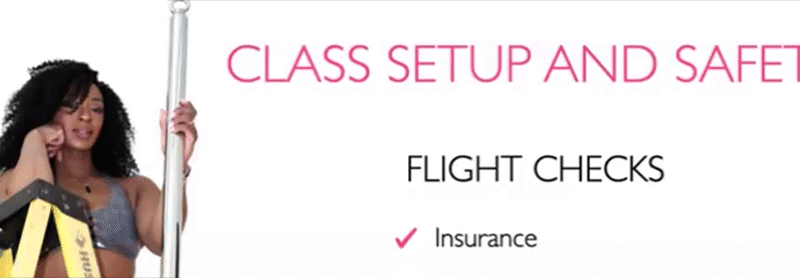So, you’ve been poling for a while, and you want to get some amazing photos…

How to Apply for Grant Funding for Your Pole Studio or Pole Business
In the dynamic landscape of owning and running a pole studio or other pole business, securing financial support can be a pivotal factor in growth and sustainability.
While there are many ways to fund your business, this post specifically addresses grant funding.
A grant differs from a small business loan in two main ways:
- Grants have specific terms for how the money has to be spent( loans do not.)
- Grants do not have to be repaid (and also don’t accrue interest), unless the terms of the grant are violated.
Here’s a guide to navigating the world of grant funding for small businesses in the United States (U.S.). Other countries may have different rules and options for grant funding.
Understanding Grant Funding
Grants are financial “awards” given by government agencies, foundations, corporations, or non-profit organizations to support specific projects or objectives. Unlike loans, grants do not require repayment (unless terms of the grant are violated), making them highly desirable for entrepreneurs looking to minimize financial risk and maintain their liquidity, or available cash or savings.
Understanding the Types of Grants Available
- State and Local Grants: Many states and local governments provide grant opportunities tailored to support local businesses, economic development, job creation, and innovation. Research your state’s economic development agency or local Chamber of Commerce to discover valuable opportunities. (Try searching for your state and “small business grants” in your search engine of choice. Look for results that end in .gov or .org)
- *Private Grants: Corporations, foundations, and other non-profit organizations establish grant programs to support specific industries, causes, or regions. These can range from industry-specific grants to those focused on minority-owned businesses or businesses creating sustainable practices. One example is Amazon’s Small Business Grant (check it out here).
- National Endowment for the Arts: The National Endowment for the Arts (NEA) is an independent U.S. federal agency designed to fund the arts and education in communities nationwide. The NEA’s primary activity is grantmaking for a variety of agencies and organizations. Check out the NEA grant categories here and see if your pole business qualifies.
- Federal Grants: The U.S. government offers various grant programs through agencies like the Small Business Administration (SBA). Note the SBA does not give grants for starting or expanding a business. SBA grants are the least likely type to apply to a pole business.
- Check our more grant opportunities at this post — featuring a long list of global opportunities!
How to Apply for Grants
- Research and Identify Grants: Begin by identifying grant opportunities relevant to your business. Use resources like Grants.gov, Arts.gov or a specific google search such as “small business grants <insert state>” or “small business grants <special demographic (eg. veteran)> <state>” if this applies to you. LegalZoom highlights 20 different grants here.
- Review Eligibility Criteria: Each grant will have specific eligibility requirements including (but not limited to) business size, industry focus, location, and project objectives. Ensure your business meets these criteria before investing time in the application process.
- Prepare a Compelling Proposal: Craft a detailed and persuasive grant proposal that outlines your business’s mission, goals, and how the grant funds will be used. Clearly articulate the impact of your project and how it aligns with the grantor’s objectives. IPIA Members Check out a sample grant application workbook at this link.
- Gather Required Documentation: Grants often require documentation such as financial statements, business plans, resumes of key personnel, and project budgets. Prepare these documents in advance to streamline the application process.
- Submit Your Application: Follow the grantor’s instructions carefully and submit your application before the deadline. Pay attention to formatting requirements! Incomplete or incorrectly formatted applications may be disqualified.
Tips for Successfully Applying for Grants
- Start Early: Grant applications can be time-consuming. Begin the process well in advance of the deadline to allow ample time for research, planning, and document preparation.
- Seek Professional Guidance: Consider consulting with a grant writer or advisor experienced in securing grants for small businesses. Their expertise can enhance the quality of your application and improve your chances of success.
- Follow Up: After submitting your application, maintain communication with the grantor. If possible, attend any information sessions or networking events to build relationships and demonstrate your commitment to the project.
Securing grant funding for your pole business can be a game-changer, providing the financial resources needed to innovate, expand, or launch new initiatives. By understanding the types of grants available, meticulously preparing your application, and leveraging available resources, you can maximize your chances of securing the funding necessary to achieve your business goals.
Remember that receiving a grant may have tax implications.
Have you ever applied for a grant? Share your experience with us!



